Greta Garbo and Marlene Dietrich claimed never to have met. But according to Diana McLellan’s seminal book The Girls: Sappho Goes to Hollywood, they did a lot more than meet.
If McLellan’s mix of history and gossip is to be taken as fact then Greta Garbo and Marlene Dietrich acted in the movie Joyless Street together. And, as both would do many times throughout their careers, they had an affair with their co-star — each other.
This affair would end in heartbreak. The younger Garbo fell hard for Dietrich only to be seen as a mere fling as the German temptress gossiped about her all over town. After this soupçon of dyke drama, Garbo would require absolute secrecy from all of her future female lovers. She’d also request Dietrich’s silence moving forward, a demand that would be respected.
Even if you don’t believe in this legendary sapphic affair, it’s clear something was going on between these two stars. They shared far too many friends and lovers to have not met and their code names for each other in various letters imply some semblance of complex history.
I’ve long devoured this gossip about Greta Garbo and Marlene Dietrich — and other sapphic legends of Old Hollywood — but the past month as I’ve finally read McLellan’s book in its entirety, I’ve turned that gossip into a viewing project. I watched every movie McLellan writes about enough to warrant mention in the index along with a handful of others.
Knowing personal details of actors can often illuminate their work on-screen. Most of these films may lack any sort of explicit queerness but the queerness inherent in the performers still shapes the work.
This is a list of movies that were new to me for this project but, um, if you haven’t seen Queen Christina that’s Garbo at her gayest and most genderqueer. Check it out!
Joyless Street (1925)
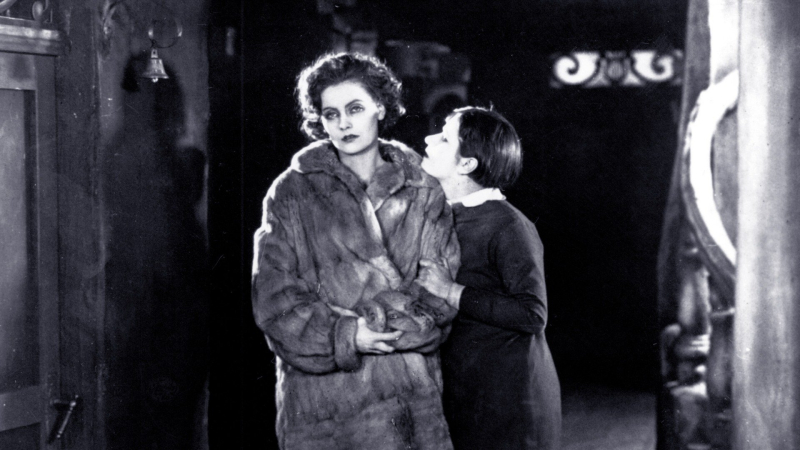
The movie that started it all! The available copies of this have Dietrich’s scenes cut out, but the film itself is still worth watching. Garbo plays a young woman struggling to support her family in early 20s Vienna. This critique of capitalism and portrait of poverty is unfortunately as relevant today as it was a century ago. And Garbo was already a star. This will be sacrilege among certain people, but if you’re new to silent dramas, I recommend choosing your own soundtrack! I love pairing silent classics with contemporary music and I’m often delighted when they happen to sync up rhythmically or thematically.
Flesh and the Devil (1926)
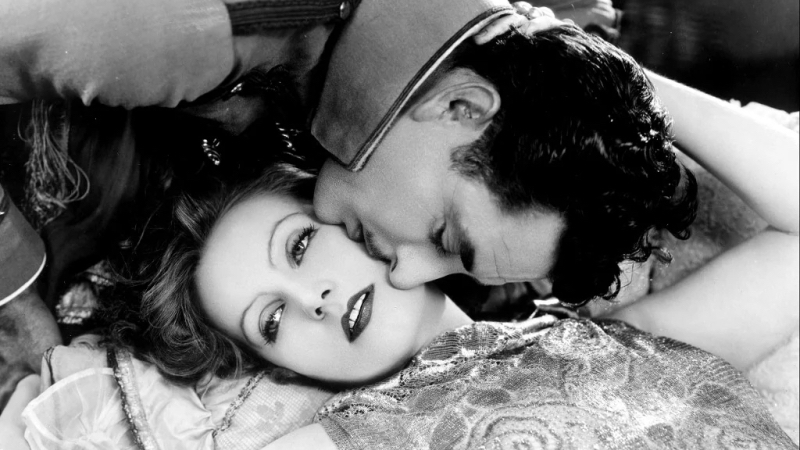
Another silent Garbo film and the greatest discovery of this project, this masterpiece from frequent Garbo collaborator Clarence Brown is the most explicitly queer film on this list. Ostensibly a film about the “very special friendship” between two men, this is noteworthy for being one of the few times I’ve seen queerness placed in opposition to sin on-screen. Garbo’s relationships with these men pull them apart from each other and lead them toward heterosexual sex and immorality. To conservative audiences at the time, it may have read as a warning against promiscuous women, but now it’s obviously a love story about the men. Garbo’s character doesn’t represent promiscuity — she represents heterosexuality.
Ninotchka (1939)
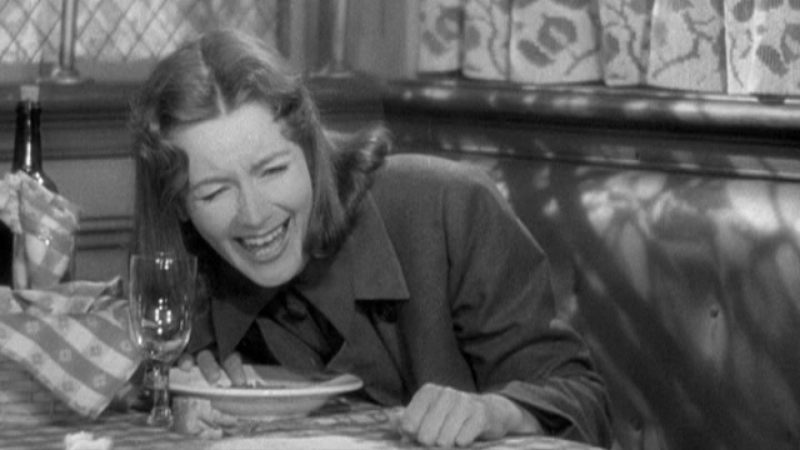
I’m a big fan of Ernst Lubitsch so I’m not sure how it took me so long to watch this film that’s among his most famous. But it did not disappoint! It’s important to watch this satire of the Soviet Union in the context of Stalinism. To read the film as a critique of communism and celebration of capitalism is to ignore Lubitsch’s own political leanings and the critique of capitalism also included on-screen. This movie was made during a moment of disillusion as the Soviet Union moved away from the communist ideals of many abroad. And yet it still upset Soviet-devotee and longtime Garbo lover, screenwriter Salka Viertel. Now it can be watched with a complete context which only makes the movie more interesting and more delightful. Garbo was not known for comedy and it’s too bad, because she is perfect here with a unique deadpan delivery. She also looks very hot in both the high femme glamor of capitalist America and the more masc simplicity of communist Russia.
The Lady is Willing (1942)
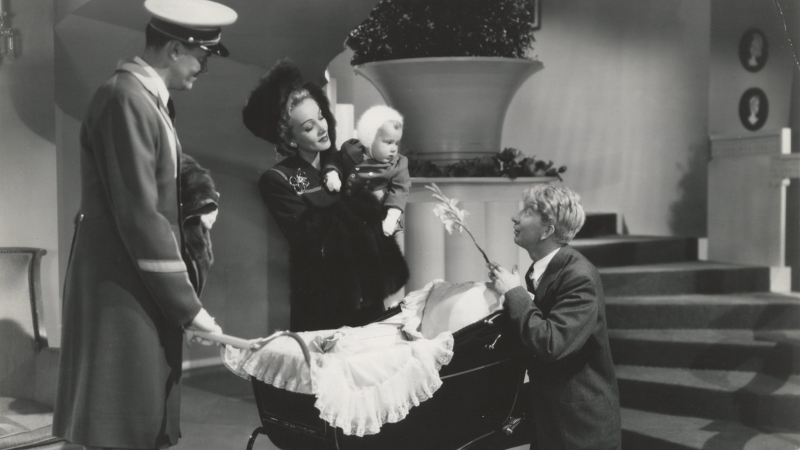
Greta Garbo and Marlene Dietrich were both dabbling in comedy around this time. Dietrich’s most comic foray may not have been the unequivocal success of Ninotchka, but it’s still worth watching. Here she plays a flamboyant actress whose life is turned upside down when she finds a baby and insists on raising him as her own. Due to some technicalities and romcom plotting, she has to enter into a fake marriage with a famed obstetrician in order to keep the baby. While the film falters when it dips into melodrama during its final third, it is so fun to watch Dietrich take on the sort of flighty femme role that fellow queer woman Katharine Hepburn did so well. Watching this makes it feel like Dietrich should be as well known for her screwball chops as she was her sultry drama.
Judgment at Nuremberg (1961)
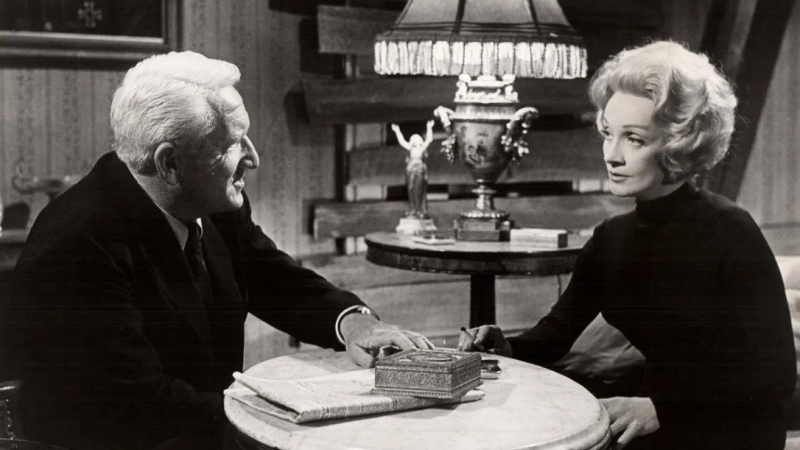
Garbo may have retired in the early 40s, but Dietrich did some of her best work in the late 50s and early 60s. Her performances in Witness for the Prosecution and Touch of Evil are rightfully the most noteworthy and I would also add her work in the 1961 legal drama Judgment at Nuremberg. One of the most fascinating non-dyke drama aspects of The Girls: Sappho Goes to Hollywood is Marlene Dietrich’s involvement with Soviet spy Otto Katz and her entire social circle’s fight against Naziism. As a person born in 1901 Germany, Dietrich was acutely aware of the Nazi’s crimes and their humanity. This film tries to grapple with both and Dietrich’s personal experience feel layered in her performance. Ultimately, the film’s attitude toward accountability and punishment settles into the expected, but not before it raises some genuinely interesting questions. How do we judge war crimes when war itself is a crime against humanity? Who should be held accountable when the worst atrocities are the fault of many?
It’s fascinating to watch Greta Garbo and Marlene Dietrich on-screen and see how their personas aligned — and didn’t align — with their real lives. Both women were excellent at glamor, but they also had a butchness they weren’t often allowed to show. Garbo especially yearned to wear pants in her movies and was told time and again by studio heads that this would be a scandal.
And yet both Garbo and Dietrich’s queerness defied wardrobe just like it defied who they were paired with on-screen. The more you know about their busy personal lives, the more you see it in their work.
Greta Garbo and Marlene Dietrich were two queer women who brought their full selves to a world that wasn’t ready for them. This queer defiance made them stars.
Watchlist is a series where I invite you to sample the hidden treasures of my personal viewing projects. Sometimes I’ll be watching every movie from a certain actor or director, sometimes I’ll be reading a film book and seeking out every movie it mentions. Every. Single. One.

Old Hollywood lesbian here. I’ve read McLellan’s book and I hate to say it, but she invented the Garbo/Dietrich affair wholesale. The whole idea is based on them meeting when Marlene appeared in one of Garbo’s films… except that was actually a different actress.
It’s always worth watching their films though!
I think you’re right BUT how do you explain how weird they were about one another? Like they were in so many of the same circles but never interacted?? Was it just jealousy?
It’s definitely interesting to think about! And it’s the kind of thing I’ve contemplated more than I perhaps should have hahaha. You’re right that’s there’s a lot of crossover… they both had love affairs with John Gilbert and Mercedes de Acosta, were in Berlin at the same time (albeit briefly, Greta only made the one German film), had friends in common, etc. (And in fact Hertha von Walther, the actress McLelland mistook for Marlene in The Joyless Street, appeared in a film with Marlene).
We know that Greta wasn’t really a people person, maybe would even be described as socially awkward nowadays. Private, neurotic, generally not light-hearted. Whereas Marlene was gregarious, social, worldly. So there are a few possible answers to your question…
The spicy answer: they had an affair that ended badly, or someone made a move at some point that wasn’t received well. It pains me to say that I don’t actually see this as likely, although it’s definitely the most fun option!
The more boring option: there were some kind of jealousy/rivalry issues going on, and so they just kept a polite distance.
The even more boring, but probably most realistic answer: they just didn’t really mesh as people and so never got to know each other well. I mean, we all have any number of loose social connections that just never coalesce into friendship.
What’s your read on things?
Would love to know your soundtrack of The Joystreet…
The last two Mitski albums hahaha
Ah yes, Flesh and the Devil… that one was amazing. Do you know Wings?
And have you seen Dietrich in Scarlet Empress, her most kinky film (though not very queer)?
Of course the best queer film with Dietrich and Anna Mae Wong is Shanghai Express.
Yes I’ve seen Wings!
I actually haven’t seen Scarlet Empress or Shanghai Express though. I got the Dietrich and von Sternberg in Hollywood set awhile back and was watching it in order with all the special features. But I’ve been moving around so much that my DVDs and Blu Rays are in storage. I did cheat and watch Blonde Venus for this project but I am SO EXCITED to get back to that set so I can finally watch those two (and The Devil is a Woman).
My favorite so far and probably my favorite Dietrich film period is Dishonored!
Seconding the recommendations for Scarlet Empress and Shanghai Express, for exactly those reasons!
Bless you!!! I am always throwing this book at people.
It would be an amazing queer tv series. Who needs the L Word when you have Vaudeville?